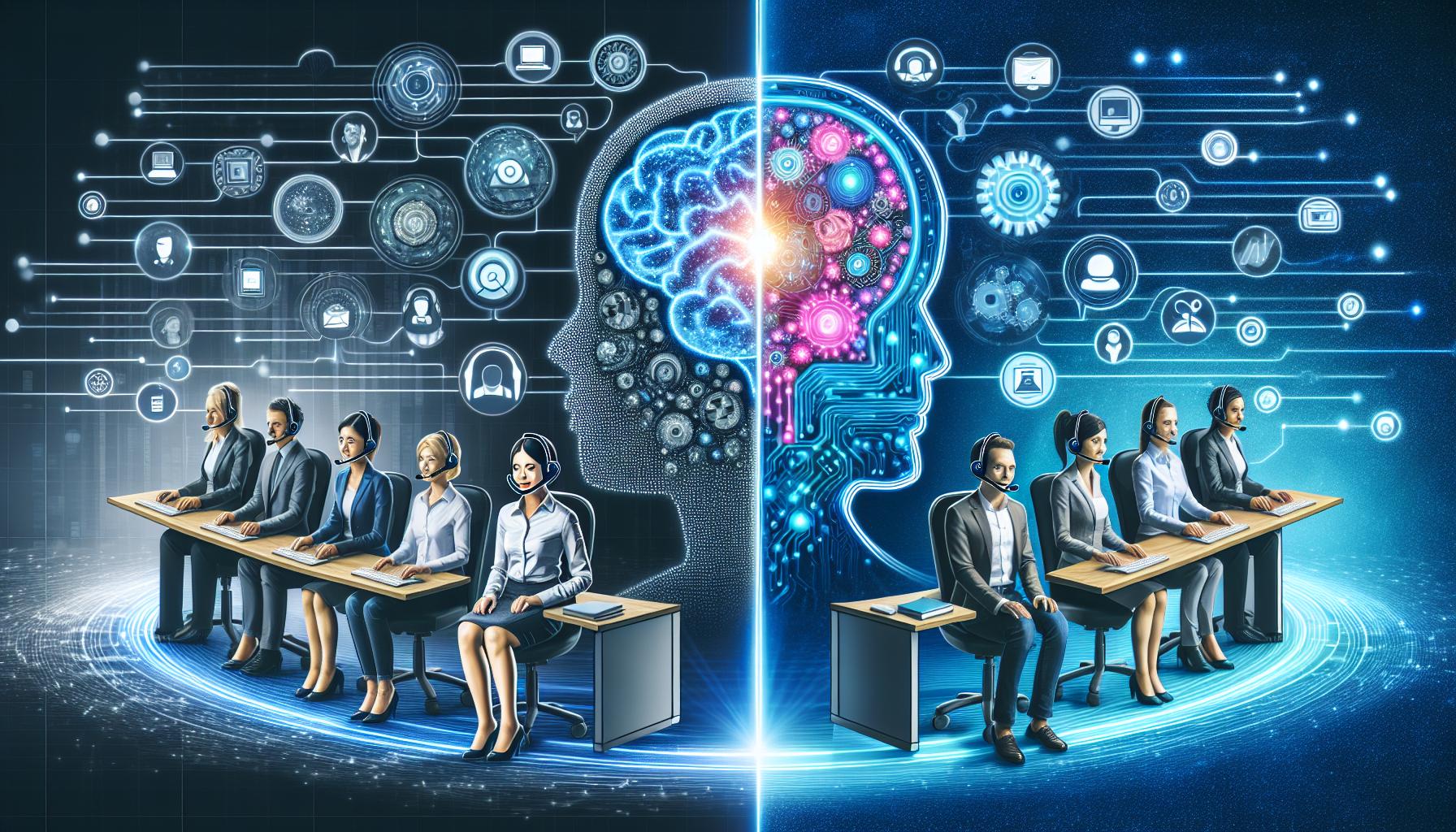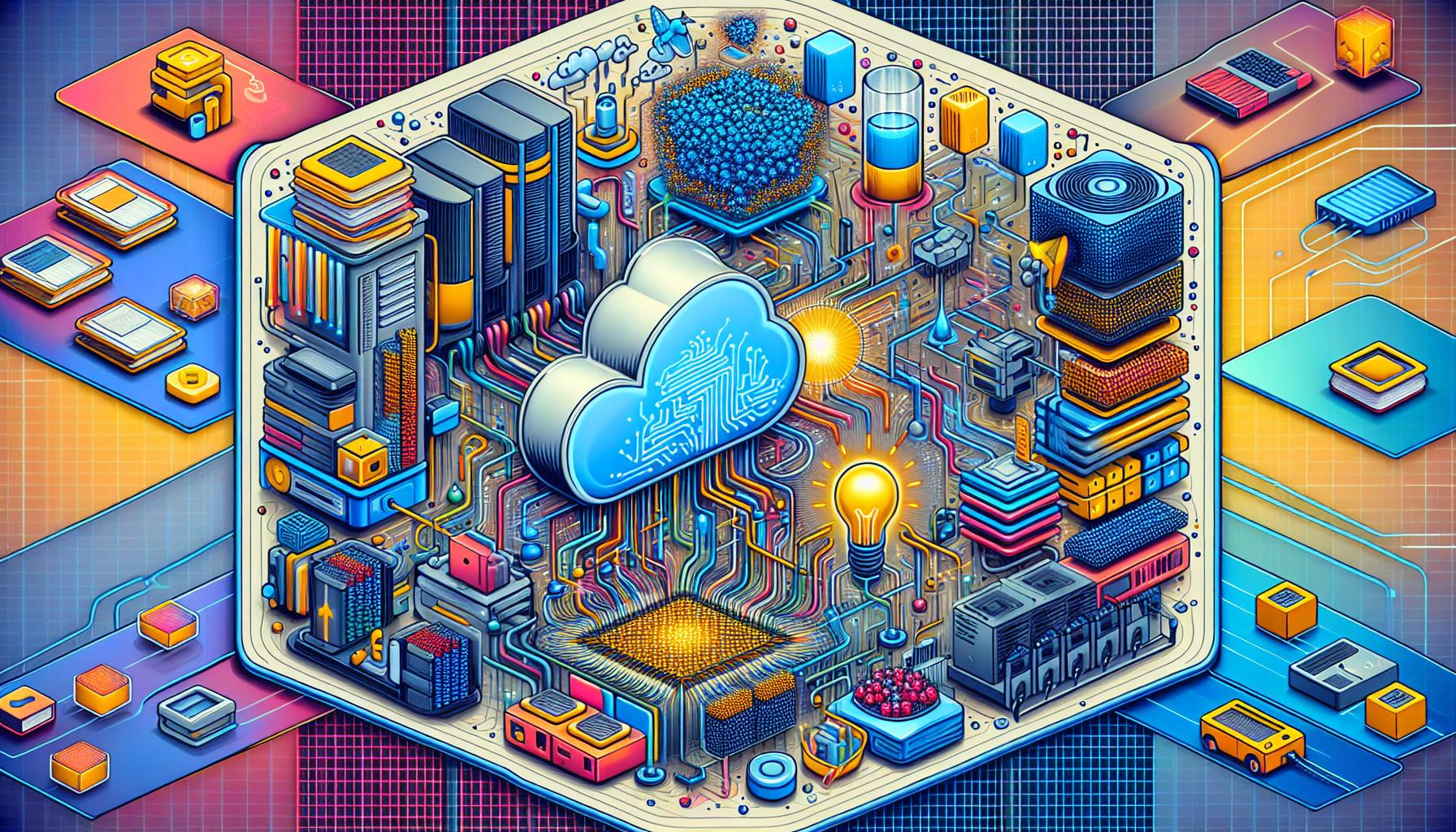GenAI Agents: Revolutionizing Business Operations

Introduction
In today's fast-paced digital world, businesses are increasingly relying on innovative technologies like Generative AI (GenAI) to optimize their operations and enhance productivity. GenAI agents, powered by advanced machine learning algorithms, mimic human cognition and decision-making, executing tasks and generating human-like text across a range of applications. These agents leverage natural language processing (NLP) and deep learning to comprehend, generate, and predict user-based content. They provide numerous advantages, including task automation, adaptive learning, and scalability, making them invaluable in various business sectors.
Key Features and Benefits
Natural Language Understanding (NLU)
GenAI agents are equipped with Natural Language Understanding (NLU) capabilities, enabling them to process complex language inputs. They understand nuances, context, and intent, which significantly enhances customer interactions. This allows businesses to offer personalized and contextually relevant responses, improving customer satisfaction and engagement.
Task Automation
One of the most significant benefits of GenAI agents is their ability to automate repetitive tasks. From scheduling meetings and creating reports to managing communications, these agents free up human employees to focus on more strategic activities. This not only increases efficiency but also reduces the likelihood of human error in routine processes.
Adaptive Learning
GenAI agents continuously improve their performance through adaptive learning. By analyzing past interactions, they enhance their response accuracy and adapt to changing user needs. This learning capability ensures that the agents remain effective and relevant over time, providing consistent value to businesses.
Scalability
Scalability is another critical advantage of GenAI agents. As business needs grow, these agents can efficiently handle an increasing volume of tasks, such as managing customer queries or generating content. This scalability ensures that businesses can maintain high levels of service without the need for proportional increases in human resources.
Use Cases in Business
Customer Service
In the realm of customer service, GenAI agents are game-changers. They provide instant, accurate responses to customer queries, handle multiple inquiries simultaneously, and reduce wait times. This efficiency boosts customer satisfaction and loyalty, as clients receive timely and helpful support.
Content Creation and Marketing
GenAI agents are also transforming content creation and marketing strategies. They generate engaging and SEO-optimized content for blogs, social media, and email campaigns, tailored to target audiences. This capability enhances a company's online presence and helps attract and retain customers.
Sales and Lead Generation
In sales and lead generation, GenAI agents play a crucial role by identifying potential leads, personalizing outreach, and conducting automated follow-ups. They analyze customer data to provide strategic insights for sales teams, enabling more effective and targeted sales efforts.
Data Analysis and Decision Making
GenAI agents excel in data analysis and decision-making processes. By analyzing large data sets, they identify patterns and provide actionable insights, aiding in informed decision-making and trend predictions. This capability empowers businesses to make data-driven decisions that drive growth and innovation.
Advantages
Efficiency
By automating routine tasks, GenAI agents enhance workforce efficiency and allow employees to focus on strategic initiatives. This shift in focus leads to increased productivity and innovation within the organization.
Cost-Effectiveness
While the initial setup of GenAI agents might seem costly, they ultimately reduce the need for extensive teams and minimize human error, resulting in significant cost savings. Over time, the return on investment becomes evident as businesses operate more efficiently and effectively.
Enhanced Customer Engagement
GenAI agents ensure consistent and high-quality interactions with customers, improving satisfaction and retention. By providing timely and relevant responses, businesses can build stronger relationships with their clients.
Real-Time Insights
These agents provide updated data analysis for quick and accurate decision-making. Access to real-time insights allows businesses to respond swiftly to market changes and emerging trends, maintaining a competitive edge.
Challenges
Despite the numerous advantages, using GenAI agents poses challenges, such as data privacy concerns, the need for regular updates, and the application of ethical AI practices. Businesses must opt for transparent and compliant AI solutions to address these issues effectively.
Future Prospects
The future of GenAI agents is promising, with ongoing advancements in AI leading to increased adoption across industries. As these technologies evolve, GenAI agents will become more intuitive and context-aware, further streamlining business operations. The potential for innovation and efficiency gains is immense, making GenAI agents a critical component of future business strategies.
Conclusion
In conclusion, GenAI agents are revolutionizing business operations by automating tasks, enhancing customer engagement, and offering valuable insights. These agents help businesses achieve greater efficiency and drive growth. Companies such as Macgence offer tailored AI solutions, helping businesses automate processes, improve customer engagement, and achieve strategic objectives. As businesses continue to explore the potential of GenAI agents, they must address ethical concerns, ensure data privacy, and integrate these technologies seamlessly into their workflows. The future is bright for GenAI agents, and their impact on business operations will only continue to grow.
Questions
1. What specific ethical concerns are associated with the use of Generative AI in business operations?
2. How can businesses ensure data privacy when deploying GenAI agents?
3. What are some potential challenges businesses might face when integrating GenAI into their existing workflows?




